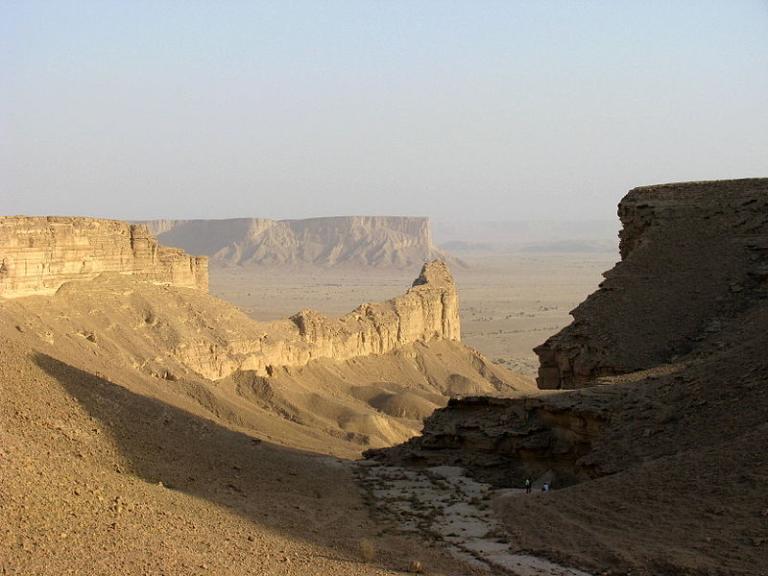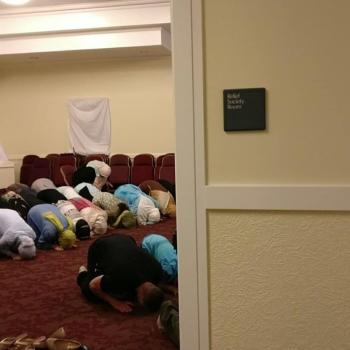
Here’s a passage from the chapter of our principal textbook that I discussed with my “Introduction to the Religion of Islam” class late on Thursday afternoon:
“From its origins, Islam has been closely identified with settled forms of social and economic life, in both the town and the city. The romantic and Western associations of Bedouin of the desert and a monotheism born from meditation in vast expanses under a brilliant sky are far from the facts. . . . Muslims have always preferred to live where people gather together for worship.” (Frederick Mathewson Denny, An Introduction to Islam, 4th ed. [Boston: Prentice Hall, 2011], 290)
As it happens, Professor Denny’s point (with which I wholeheartedly agree), dovetails very nicely with a couple of passages that I had discussed in the Thursday morning meeting of my class on the Qur’an in English translation, for which we use M.A.S. Abdel Haleem’s rendition in the Oxford World’s Classics series:
“The desert Arabs who stayed behind will say to you, ‘We were busy with our property and our families: ask forgiveness for us,’ but they say with their tongues what is not in their hearts. . . . Tell the desert Arabs who stayed behind, ‘You will be called to face a people of great might in war and to fight them, unless they surrender: if you obey, God will reward you well, but if you turn away, as you have done before, He will punish you heavily.” (Qur’an 48:11, 16)
“The desert Arabs say, ‘We have faith.’ [Prophet], tell them, ‘You do not have faith. What you should say instead is, “We have submitted,” for faith has not yet entered your hearts.'” (Qur’an 49:14)
Islam arose in the seventh-century Arabian cities — towns, at least — of Mecca (or Makka) and Yathrib. (The name Yathrib is now essentially forgotten except as a matter of historical interest, having been replaced by Madinat al-Nabi [“The City of the Prophet”], al-Madina al-Munawwara [“The Illuminated City”], or, simply and much more commonly, al-Madina [Madina, Medina, “The City”]). It was — and, as I intend to illustrate, this is quite obvious from the text of the Qur’an — a message that originally emerged among the population of a mercantile town and that was phrased in terms that would make sense to such a population.
The townspeople respected the nomadic Bedouin Arabs in very important ways, but the earliest Muslims mistrusted their commitment to Islam. The notion that Islamic monotheism was inspired by a Bedouin environment, with its stark contrast of the all-powerful Sun to the simplicity of endless sand dunes and an overarching deep blue sky, simply can’t withstand historical scrutiny.












